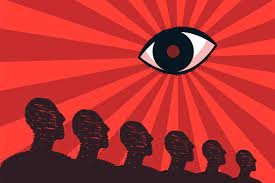Dr Nawaz Baloch
Fascism is a political ideology and movement that emerged in the early 20th century. It is characterized by authoritarianism, nationalism, militarism, and the suppression of opposition. Fascists often believe in a natural social hierarchy, a strong leader, and a unified community. Fascism also tends to be racist, authoritarian, and anti-democratic.
There are different types of fascism that have developed in different countries and contexts. Some of the most well-known examples of fascist regimes and movements include:
Italy’s Mussolini, who founded the National Fascist Party and ruled Italy as a dictator from 1922 to 1943. He allied with Nazi Germany and Japan in World War II and pursued an aggressive expansionist policy in Africa and Europe. He also enacted anti-Semitic laws and persecuted political opponents, Jews, Roma, and other minorities. Germany’s Hitler, who led the Nazi Party and the National Socialist movement. He became the chancellor of Germany in 1933 and established a totalitarian regime that aimed to create a “racial state” based on the supremacy of the “Aryan” race. He initiated World War II by invading Poland in 1939 and orchestrated the Holocaust, the genocide of about six million Jews and millions of other victims. He also persecuted political opponents, communists, socialists, trade unionists, Roma, Slavs, homosexuals, people with disabilities, and others.
Japan’s Tojo Hideki, who was the prime minister of Japan from 1941 to 1944 and the leader of the Imperial Japanese Army. He was responsible for the attack on Pearl Harbor in 1941 that brought the United States into World War II. He also oversaw Japan’s expansionist war in Asia and the Pacific, which involved atrocities such as the Rape of Nanking, the Bataan Death March, and the use of biological and chemical weapons. He also supported Japan’s emperor worship and state Shintoism as a form of nationalism.
Other examples of fascism include Austro-Fascism in Austria, Integralism in Brazil, Ustase in Croatia, Vichy France in France, Metaxas Regime in Greece, Estado Novo in Portugal, Iron Guard in Romania, Francoism in Spain, British Union of Fascists in Britain, Ku Klux Klan in the United States, among others.
Don’t forget to Subscribe our channel & Press Bell Icon.
Fascism can be countered by various strategies that aim to expose its lies, challenge its narratives, disrupt its activities, mobilize public opinion against it, and build alternative forms of democracy and solidarity. Some examples of how to counter fascism are:
Learn about fascist movements and their history, ideology, symbols, tactics, and goals. Educate yourself and others about the dangers of fascism and how to recognize its signs. Use reliable sources of information and avoid spreading misinformation or rumors.
Find collaborators who share your values and vision for a more just and inclusive society. Join or form groups that oppose fascism and support human rights, social justice, diversity, and democracy. Network with other groups and movements that have similar aims or face similar threats from fascism.
Keep an eye on the local fascist groups and their activities. Monitor their online platforms, publications, events, rallies, propaganda, recruitment efforts, etc. Document and report any incidents of hate speech, harassment, intimidation, violence, or vandalism by fascists. Alert your community and authorities about any potential threats or dangers from fascists.
Release your research and findings to the public and the media. Expose the identities, affiliations, connections, funding sources, criminal records, etc., of fascists and their supporters. Reveal their hypocrisy, inconsistency, corruption, and falsehoods. Debunk their claims, arguments, and conspiracy theories. Use facts, evidence, and logic to refute their lies.
Remove and replace fascist propaganda from public spaces. Take down or cover up posters, stickers, graffiti, flags, etc., that promote fascist messages or symbols.
Replace them with positive, creative, and humorous counter-messages or symbols. Use art, music, theater, poetry, etc., to express your resistance to fascism and your vision for a better world.
Push public groups to oppose fascism and take a stand for democracy and human rights. Pressure politicians, parties, institutions, organizations, businesses, media, etc., to denounce fascism and its manifestations. Demand that they adopt policies and practices that protect and promote the rights and interests of all people, especially those who are marginalized, oppressed, or discriminated against by fascists. Hold them accountable for their actions or inactions regarding fascism.
Make it difficult for fascist groups to meet, organize, or operate in your area. Protest, disrupt, or block their events, rallies, marches, meetings, etc.
Use nonviolent direct action, civil disobedience, or legal challenges to prevent or hinder their activities. Deny them access to public spaces, venues, resources, platforms, etc., that they need or want to use. Boycott or divest from any businesses or entities that support or enable them.
Be patient, foresighted, and persevering in your struggle against fascism. Recognize that fascism is not a temporary phenomenon that can be easily defeated or eliminated. It is a complex and persistent problem that requires long-term and multifaceted solutions. Do not give up or lose hope in the face of setbacks, challenges, or failures. Learn from your mistakes and successes and adapt your strategies accordingly. Celebrate your achievements and support each other along the way.
Avoid violence or escalation that could play into the hands of fascists or harm your cause. Fascists often provoke or instigate violence to justify their own violence, to portray themselves as victims or heroes, to discredit or demonize their opponents, or to create chaos and fear. Do not fall into their trap or give them what they want. Use nonviolent methods that are more effective, ethical, and sustainable in resisting fascism and building a peaceful and democratic society.
Subscribe our website for latest updates:
https://republicpolicy.com/shop/
Read More















